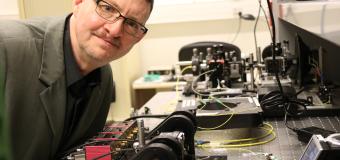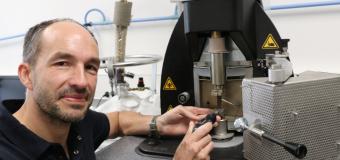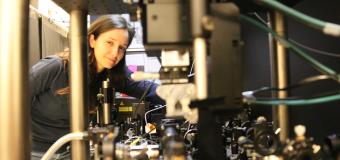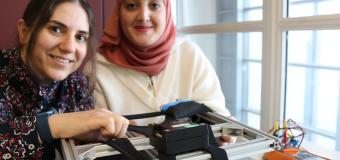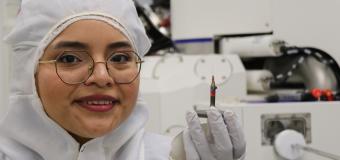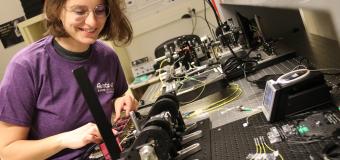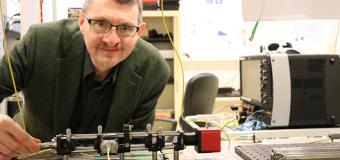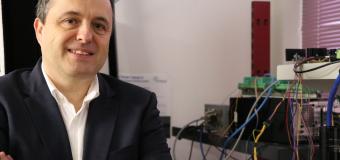First experimental observation of the roton effect in metamaterials
Experiments conducted jointly by FEMTO-ST and KIT demonstrate the control of forward and backward wave propagation by adjusting the frequency.
The roton is a quasi-particle that satisfies an unusual dispersion relation for acoustic waves in superfluid Helium-4 at low temperatures. Two recent theoretical papers have shown that roton-like dispersion relations exist in periodic media or metamaterials. Experimental demonstration of the effect was however still lacking. A joint study published in SciencesAdvances by the Karlsruher Institut für Technologie and FEMTO-ST reports on the experimental observation of the roton effect in elastic and acoustic metamaterials.
The following figure shows a 3D view of the acoustic metamaterial examined by the French group.
[[{"fid":"10166","view_mode":"default","fields":{"format":"default","alignment":"","field_file_image_alt_text[und][0][value]":false,"field_file_image_title_text[und][0][value]":false,"external_url":""},"type":"media","field_deltas":{"2":{"format":"default","alignment":"","field_file_image_alt_text[und][0][value]":false,"field_file_image_title_text[und][0][value]":false,"external_url":""}},"attributes":{"class":"media-element file-default","data-delta":"2"}}]]
Remarkably, continuous tuning is obtained, by a simple adjustment of the wavelength, from forward wave propagation to backward wave propagation, followed by a minimum of the dispersion relation that marks the effective presence of the roton at audible frequencies.
The study illustrates that using higher-order interactions, that are relatively easy to implement with elastic and acoustic waves, opens unprecedented experimental possibilities for modeling the dispersion of phonons and their interactions.
This work was highlighted on the website of the French National Centre for Scientific Research : see the article
Contacts :



